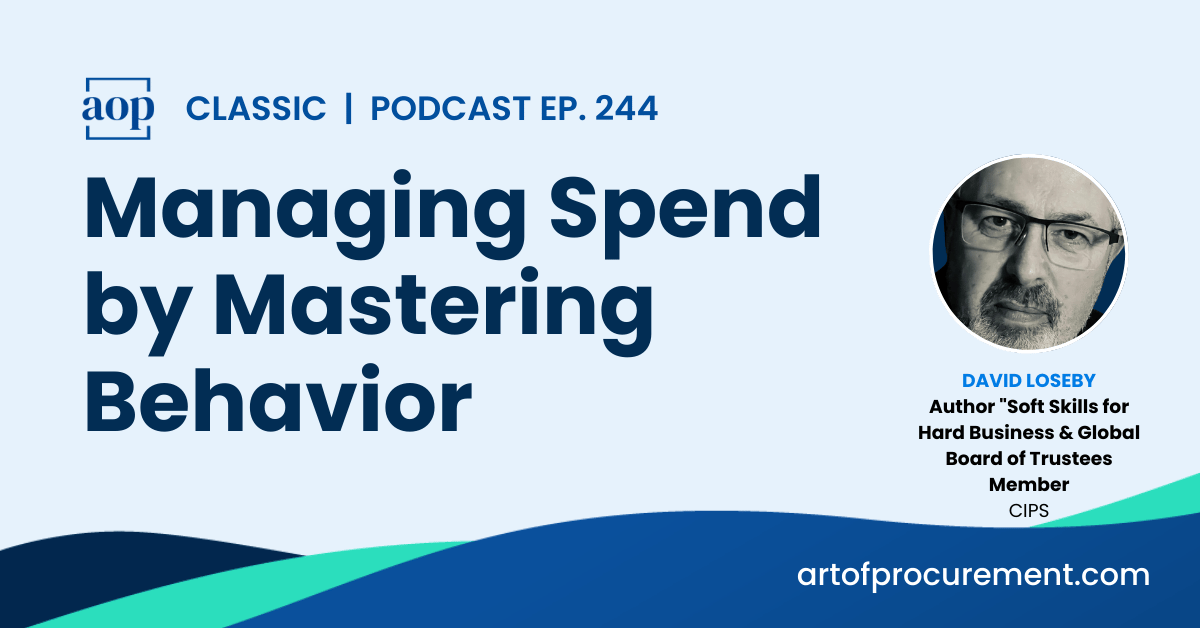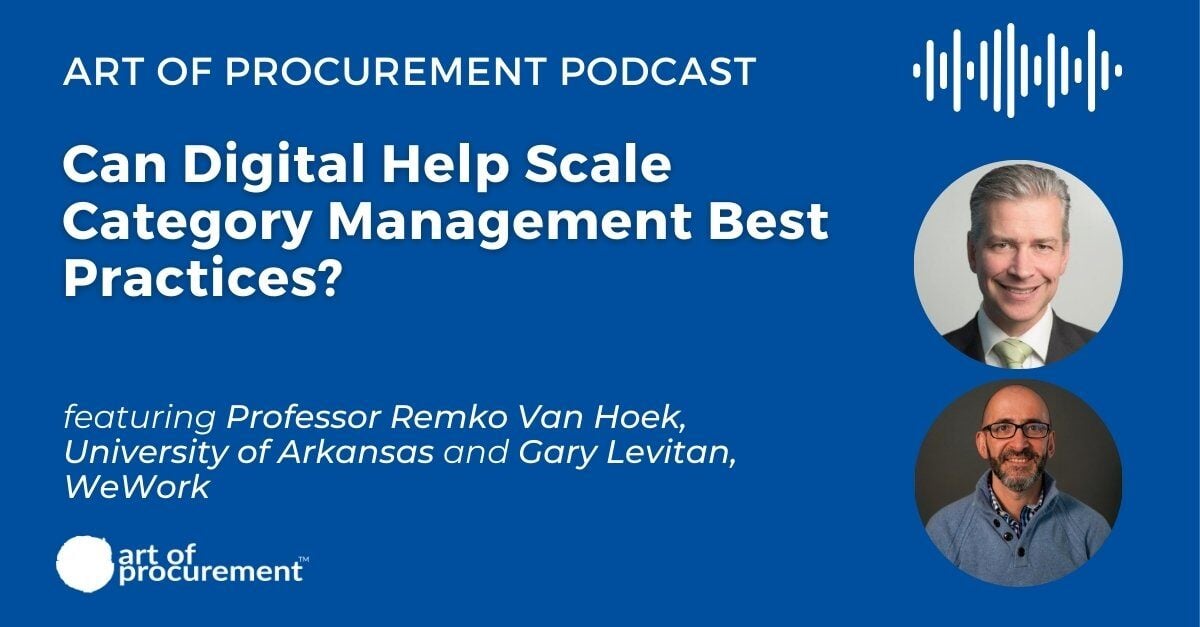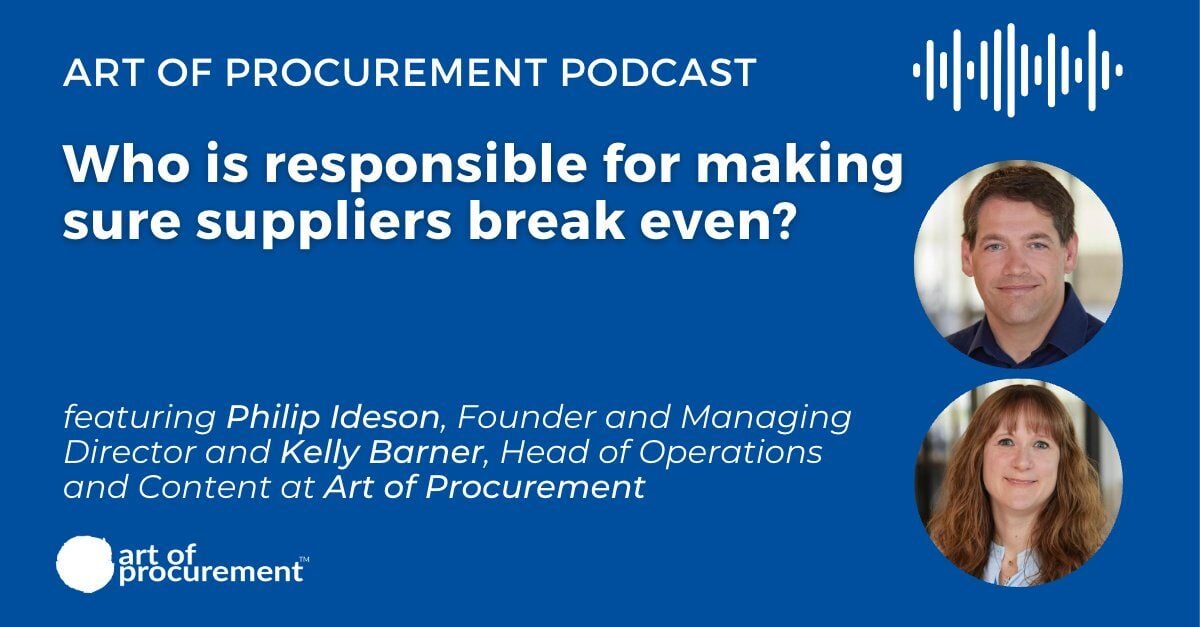
In an era when we emphasize the importance of ‘soft skills’ in the face of the hardest business challenges, the human element is impossible to ignore. While most of us tend to focus on developing our own interpersonal skills (or the absence of desired interpersonal skills in others), an equally important element is behavior. What are people doing and why? If we can understand behavior, we are in a far better position to deliver results and build sustainable relationships.
I’m joined today by David Loseby. David is a former CPO, a partner at Barkers Procurement & Commercial Advisors, Global Board of Trustees Member of CIPS, advisor, and author of ‘Soft Skills for Hard Business’ (2018). He has spent 25 years at the senior executive/director level driving value and change through procurement, organizational transformation and change management in the public and private sectors.
As David explains, the importance of remembering what while we all expect others to exhibit ‘rational’ behaviors, rationality is in the eye of the beholder. In cases where we think others are acting against their or the enterprise’s best interests, it is likely that we either do not have access to the same information they do, or that they are interpreting that information differently than we are. Getting to the root of that disconnect is the most effective way to address unexpected behaviors and achieve alignment.
In this interview, David discusses:
- Using ‘pre-mortems’ to root out potentially fatal problems before they have a chance to occur, and working as a team to resolve them.
- The importance of customizing our communications and language to connect with the perspective of each person or audience.
- Remembering that in a negotiation it is not enough to achieve clarity – the other party must fully comprehend your position and the reasons for it (i.e. hearing v. understanding).
- The application of social science concepts such as ‘cognitive frames’, ‘bounded rationality’ and ‘behavioral economics’.
Subscribe to Art of Procurement
Apple | Stitcher | iHeart Radio | Email
Links & Resources
- Practitioners: get 25% off any ProcureCon North America 2019 ticket
- Learn more about Art of Procurement’s partnership with Ivalua in support of their Ivalua NOW event series.
- David Loseby on LinkedIn
- ‘Soft Skills for Hard Business’ on Amazon
- Buyers Meeting Point review of ‘Soft Skills for Hard Business’




